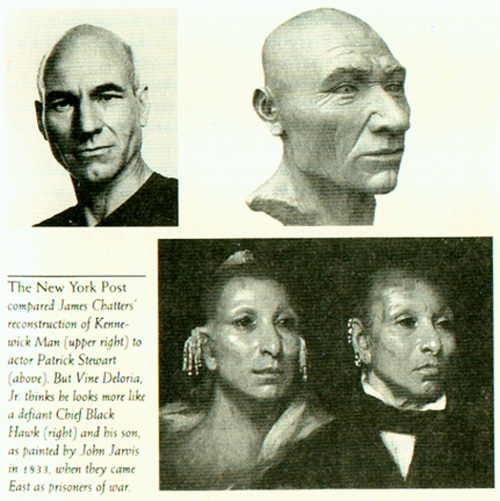20 January 2015, by Sandi Doughton, The Seattle Times:
Nearly two decades after the ancient skeleton called Kennewick Man was discovered on the banks of the Columbia River, the mystery of his origins appears to be nearing resolution. Genetic analysis is still underway in Denmark, but documents obtained through the federal Freedom of Information Act say preliminary results point to a Native American heritage.
The researchers performing the DNA analysis "feel that Kennewick has normal, standard Native-American genetics," according to a 2013 email to the U.S. Army Corps of Engineers, which is responsible for the care and management of the bones.
"At present there is no indication he has a different origin than North American Native American."
If that conclusion holds up, it would be a dramatic end to a debate that polarized the field of anthropology and set off a legal battle between scientists who sought to study the 9,500-year-old skeleton and Northwest tribes that sought to rebury it as an honored ancestor.









